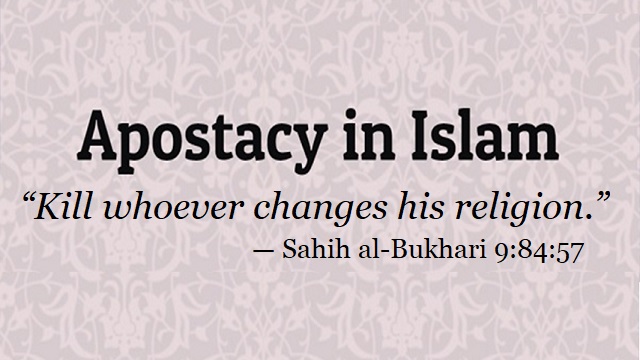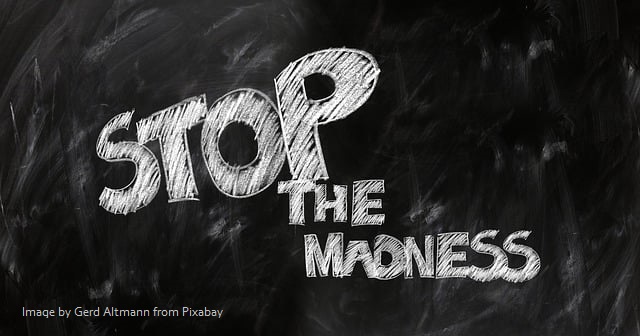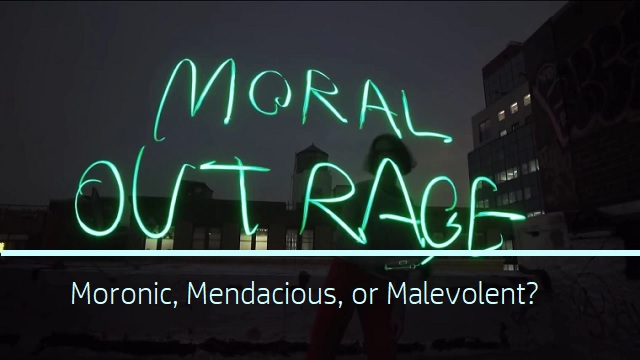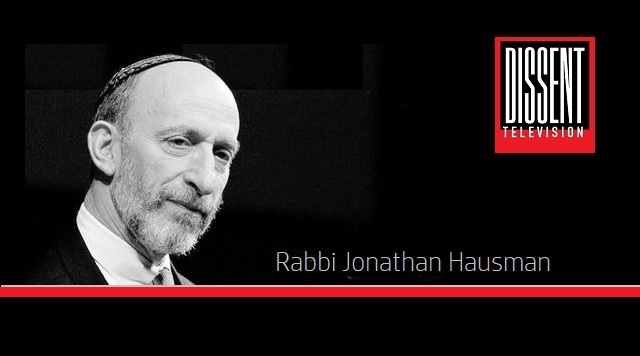
“You can’t love God without loving the Jewish people.” — Corrie Ten Boom
“For the Lord will not cast off his people, neither will He forsake his inheritance.” — Psalm 94:14
“Behold, I have engraven thee upon the palms of my hands; thy walls are continually before me.” — Isaiah 49:16
“Wherever replacement theology has flourished, the Jews have had to run for cover.” — Biblical scholar, Thomas Ice
The relationship between Gentiles and Jews thrived in the early Church and they viewed one another as brothers and sisters. Gentiles adopted Jewish traditions as Sabbath rest, Biblical feasts, Holy Days, et al. As Christianity spread and more Gentiles were converted, the Church began to estrange itself from its Jewish Roots. Soon, the Church consisted more of Gentiles than Jews causing the church to deviate from its Biblical roots.
Since those early days, there has been a two-thousand-year Church battle against Judaism. The dark history is the central tragedy of Western civilization with its fault lines reaching deep into our own culture. The ugly hostility and contempt of God’s people has slithered out from under rocks and is raising its poisonous fangs once again.
These imperial measures were the fruits of replacement theology from the early church fathers, and their allegorical translations of the Word. As noted in this series, replacement theology increasingly became mainstream within the Roman Catholic, Orthodox and Protestant communions. The germination of this repugnant and false doctrine commenced during the early second century, followed by budding during the third century and then coming to full bloom in the fourth century and onward. It was Augustine who formally established the noxious strain that has become the accepted norm for eschatology within the Christian church in general.
None of this had to be, as there were men of God who loved the Word and knew that Jacob was destined for glory by the Lord Himself. Heroes were forgotten, truth was buried, words were changed via a symbolic fictional narrative that conveys a meaning not explicitly set forth in the narrative, and the liars were promoted as church fathers.
Prior to Chrysostom and Jerome and Ambrose and Augustine, the cancer of anti-Judaism was already metastasizing. Constantine and the leading theologians and scholars of the Nicaean Council, in their formulations on behalf of the state church, provided the impetus that gathered steam and rolled on through the centuries.
Augustine appears to ignore Paul when, in Romans 11:17-20, Paul explicitly admonishes the Gentile Christians to treat the Jews, both believing and unbelieving, with respect and fear.
Following the consolidation of vigorous supersessionism (the name used by the promoters) via Ambrose and Augustine during the close of the fourth century, the growing authority of the Roman Catholic church ensured that no other eschatology would be tolerated. From then on, albeit there was some relief injected during the mid-seventeenth century in England, and even on to recent time, still, the global humiliation of the Jewish people was assured and perpetuated. The Reformation also provided some relief, yet it continued to perpetuate the Augustinian eschatology that ultimately led to the horrific slaughter of the Jews during the twentieth century.
The Illegitimate Hybrid
As Leonard Verduin has put it, “In a word, the sons of God (the church) and the daughters of men (the state) had given birth to an illegitimate hybrid, an ungainly and ugly creature but, as is often the case with hybrids, a rugged one. It promised to be on the scene for a long time to come.”
“The advance of the politicizing and secularizing of biblical Christianity, especially its manifestation during the Constantinian revolution, resulted in church and state being welded together with the church becoming dominant along with supporting military development and the employment of coercion.” (Leonard Verduin, The Anatomy of a Hybrid, 1976, 103-104, 107).
This evil hybrid is with us today with all its superficiality, carnality, tyranny, and perpetuated anti-Judaic heritage. We need an eschatological revival beginning with heartfelt repentance concerning a shameful and evil anti-Judaic past. Then we need the truth of the Lord’s Word spread throughout the nation and world and a kindly rapport with the Jewish people. We need to plead for forgiveness from both the Lord and His people. And we need to do what the Lord said, To the Jew First, and also to the Greek.
The transformation of Constantine’s cross into a sword, the rise of blood libels, scapegoating, and outright Jew hatred, has the church not only in conflict with the Jewish people, but also with itself.
Constantine
Constantine was born 272 AD and died 337 AD. Christianity was illegal in the Roman Empire until the fourth century. Replacement Theology had already overtaken the church and metastasized into Jewish hatred. They had no authority to do anything other than speak against the Jewish people, but that changed in AD 313 with a ruler named Constantine.
As a member of Emperor Diocletian’s court, Constantine was preparing to lead his troops at the Battle of Milvian Bridge in AD 312 when he claimed to have a vision of a cross in the sun. He prayed to the Christian God, put Christian symbols on his banners and then won a victory over an older and more experienced general.
In AD 313, Constantine became emperor of the Roman Empire and legalized Christianity and brought the church under the authority of Rome. Clergy were on the empire’s payroll, and the church became part of the state. Eight years later, Christianity became the official religion and 60 years later it was the exclusive religion of the Roman Empire.
Eusebius, who was an influential scholar and the bishop of Caesarea by the Sea, was born around 265 and died around 340. He is widely known for his Ecclesiastical History, but penned a broad range of useful literature. His theological proclivities fell on the side of amillennialism and the allegorical method, but he had a defense of the pretribulation rapture that was especially significant and was in several of his documents. Eusebius had baptized Constantine, became his close advisor and wrote the biography of Constantine shortly after his death.
In the early church, premillennialism and the pretribulation rapture held out against the juggernaut of replacement theology for a couple more centuries after a Biblically prophesied literal millennium had been driven into oblivion.
Ephraim the Syrian also believed and wrote about the pretribulation catching away in ten of his documents. The Eusebius passages do not stand alone; along with numerous citations from other early fathers that are long and well known. The truth is the pretribulation rapture was taught by many in the early church. The testimony endured until the late Koine era, when it was finally snuffed out after several centuries of concerted efforts by the juggernaut of replacement theology to crush all opposition.
Proponents of replacement theology will claim that the premillennial belief system did not appear on the scene of church history until J.N. Darby in the 1830s. Their efforts to destroy the premillennial doctrine is evident in their diatribes against the Jewish people as well as those in the church who fully love and bless Israel.
Irenaeus of Lyon (120-202) was a pre-tribulationist. Irenaeus was a disciple of Polycarp (who was a disciple of the apostle John) and articulated his eschatological views in Against Heresies, Book 5, written to refute gnostic heresies. Link
Premillennial verses are not just in the New Testament. Daniel 12:1-2, Isaiah 26:19-21, Isaiah 57:1, Zephaniah 2:3 and Micah 7:2a clearly indicate the premillennial view reiterated in the New Testament. When any denomination of the church claims the Torah and the writings of the major and minor prophets of the Hebrew Bible are unimportant, they are purposely denying the truth of God’s Word as therein lies the core of faith, much of which is reiterated in the New Testament.
Now we take a look at the ecumenical councils. This is a period in which “for the first time in history the Church’s theological understanding concerning Israel dictated official policy even though it was indirectly.” (Diprose, Israel and the Church, 126.)
The establishment of an imperially governed church, into which traditional anti-Jewish teachings were incorporated, threatened the Jews far more seriously than the pen of Augustine and the orations of Chrysostom.
This is state legislated hatred of God’s people, Israel.
Constantine’s Nicaea Council
“Through the ecumenical councils, the church was in the position of adopting an officially sanctioned anti-Semitic program, imposing repressive social, religious and economic restrictions on the Jewish people. The measures aren’t too different in principle from those being adopted by today’s church ‘councils’ with ‘Boycott Israel’ canon law. Boycott, Divestment and Sanctions (BDS) is a nonviolent Palestinian-led movement promoting boycotts, divestments, and economic sanctions against Israel.
“The early church believed the stateless Jews had been lawfully dispossessed and the church, under Constantine’s protection, was at liberty to plunder Jewish interests with impunity ‘believing,’ albeit falsely, it was serving God’s best interests. The Nicaea Council in AD 325 marked the point at which the scales of justice would forever weigh in the favor of the church.” (Israel Betrayed, Volume 1, Andrew D. Robinson.)
The leading theologians and scholars subsequently agreed with the proclamation of the First Council of Nicaea and Constantine. Anti-Jewish measures had previously been taken as early as AD 306 at the Spanish Council of Elvira. They had passed 81 canons then and several concerned the separation of Jewish and Christian interests. Legislation arose outlawing synagogues and giving permission to burn Jews who broke the law. Jewish people were excluded from high office, restricted in other positions, and forced to shut their businesses on Sunday. Since religious Jews also closed on Saturday, the law helped Gentile merchants.
Christians could not share a meal with a Jew, marry a Jew, or observe the Jewish sabbath and this Jew hatred even went so far as defining what blessings could be given, even over agriculture.
Sounds much like Nazi Germany!
The entire Council was anathema to the Old and New Testaments by passing resolutions which were completely incompatible with the Lord’s teachings. Known as “the synod of the 318 fathers,” although the actual attendance is uncertain, Nicaea was convened at Constantine’s behest. The last was held at Nicaea in AD 787.
The most significant ruling to change Jewish-Christian relations was Constantine’s desire to separate “Easter” from Passover on the fourteenth of Nissan, which never should have been done. He wrote a vile letter to the council defaming the Jewish people and their practice of Passover. His tone was shamefully anti-Judaic, and I include only a small portion:
“We ought not, therefore, to have anything in common with the Jews. We desire, dearest brethren, to separate ourselves from the detestable company of the Jews. It is your duty not to tarnish you soul by communications with such wicked people [the Jews]. (Constantine I: “On the Keeping of Easter,” Fordham University Internet Medieval Sourcebook, ed. Paul Halsall, http://www.fordham.edu/halsall/source/const1-easter.html)
Nicaea set the spiritual tone for future discrimination by kindling the fires of church-and state-sanctioned anti-Semitic dogma and activism.
Successive councils fanned this hatred into flames and Constantine ensured the fires were kept fueled. He decreed that no one should remain in servitude to a Jewish master, which purposely undermined the economic structure of Jewish agricultural society. They found it impossible to maintain any fair-sized agriculture unit with employing “slaves” who were rapidly becoming Christianized. Poverty overtook them and dark days in the history of Christian Jewish relations emanated from the horrible discrimination against the Jews.
In 415 another turning point came, and anti-Semitism went from being merely verbal to being physical when Cyril, head of the church in Alexandria, led a brutal anti-Jewish riot in the city’s Jewish quarter. Christians beat Jews, raped women, murdered men, stole Jewish property, and drove the Jewish people from the city. From that point on, anti-Semitism mushroomed. It is literally impossible to count the number of cruel, violent, and merciless things done to God’s Chosen People.
The First Crusade
The following three paragraphs come in part from Constantine’s Sword, The Church and The Jews, by James Carroll.
The first crusade was a military expedition that set out from northwestern Europe in the spring of 1096, bound for the Holy Land. But the cross-marked army’s first act of belligerence took place in the Rhineland, not Jerusalem, and its target was not the Muslim infidel, but the Jewish one. The story of the crusades used to be familiar to all school children, but like so many other historic events, it has been eliminated. It was rarely told from the view of the first victims and what they saw when the horde came.
“Mainz Anonymous,” wrote one of the surviving Hebrew chronicles recounting the events of 1096 as they were experienced by the Jews:
There first arose the princes and nobles and common folk in France, who took counsel and set plans to ascend, and “to rise up like eagles” and to do battle and “to clear a way” for journeying to Jerusalem, the Holy City, and for reaching the sepulcher of the Crucified, “a trampled corpse” “who cannot profit and cannot save, for he is worthless.” They said to one another: “Behold we travel to a distant land to do battle with the kings of that land. “We take our souls in our hands’ in order to kill and subjugate all those kingdoms that do not believe in the Crucified. How much more so (should we kill and subjugate) the Jews, who killed and crucified him.” They taunted us from every direction. They took counsel, ordering that either we turn to their abominable faith or they would destroy us “from infant to suckling.” They, both princes and common folk, placed an evil sign upon their garments, a cross. (The Hebrew First-Crusade Chronicles: S, cited by Chazan, European Jewry, 225.)
Another Jewish chronicler of the crusaders’ rampage through the Rhineland, Solomon bar Simson, also fixed on the symbol of the cross: “They decorated themselves prominently with their signs, placing a profane symbol, a horizontal line over a vertical one, on the vestments of every man and woman whose heart yearned to go on the stray path to the grave of their Messiah. Their paths swelled until the number of men, women and children exceeded a locust horde covering the earth.” (“The Chronicle of Solomon bar Simson,” in Eidelberg, The Jews and the Crusaders, 21.)
These memories were only partly overshadowed by the Holocaust of the twentieth century, the systematic extermination of Jews by the Nazi regime in Germany before and during World War II (1939–45). Referring to this later period of violence, the historian Malcolm Billings noted in his book The Crusades: Five Centuries of Holy Wars, “The road to the Holy Land ran through what Jews later came to describe as the first Holocaust.” The goal was to rid the Holy Land of Muslims, but their path was littered with the bodies of God’s chosen, men, women and children.
Not all European Christians shared in this blood lust against the Jews. Many members of the Christian clergy tried to excommunicate, or expel from the church, those who were persecuting the Jews. Some went much further. Like Yad Vashem, which honors non-Jews who took great risks to save Jews during the Holocaust, a small percentage of the church did the same thing in the Crusades.
Conclusion
I have but skimmed the surface of the Amillennial replacement theologists’ devotion in allegorizing the Word of God to fit their determined desire of replacing the Jews in the Christian Bible. My heart breaks that so many have been led astray in our churches thinking that our Creator was done with “the apple of His eye.”
What moral turpitude are the words, writings and actions of these men who literally endorsed the hatred and murder of those beloved by God.
James Parkes explains the significance of these developments, “There is no other adequate foundation (for modern anti-Semitism) than the theological conceptions built up in the first three centuries. But upon these foundations an awful superstructure has been reared, and the first stones of that superstructure were laid, the very moment the church had power to do so, in the legislation of Constantine and his successors.” (Quoted in Diprose, Israel and the Church, 127.)
In R. Kendall Soulen’s, God of Israel, he writes, “Apart from a relationship to the people Israel, no relationship to the God of Israel is possible. God is the Creator and Ruler of the universe, but God does not draw near as the conclusion of cosmological or ontological proofs for the existence of God. God draws near as the God of Abraham who took the people Israel out of the land of Egypt and who remains this nation’s God to the end of time.”
As Paul declares, “It is not as though the Word of God has failed” (Romans 9:6). For this reason, it remains true that the Jewish people “are (and will continue to be) beloved (by God) for the sake of their forefathers” (Romans 11:28).
Hatred of the Jewish people, fomented by the Church, is a demonic apostasy of truth loaded with deceitful spirits and doctrines of demons. Without the Jewish people, there would be no Christian Bible, there would be no Christian Messiah, the Lion of the Tribe of Judah, the Root of King David, would not exist without God’s Chosen People.
As Corrie Ten Boom said time and again, “You can’t love God without loving the Jewish people.” And to that I say a Big AMEN!
©2024. Kelleigh Nelson. All rights reserved.
Bibliography
Ariel Magazine, Fall 2023, Volume I / #48, The Eternal Order, Brainard, Lee W., Rapture Discoveries in Eusebius.
Brown, Michael L., 1992, Destiny Image Publishers, Our Hands are Stained with Blood.
Carroll, James, 2001, Houghton Mifflin company, Constantine’s Sword, The Church and the Jews. My daughter gave me this book over 20 years ago. Author James Carrol is a former Catholic priest who left the priesthood to write.
Fruchtenbaum, Arnold G., 2003, Ariel Ministries, The Footsteps of the Messiah.
Horner, Barry E., 2007, Broadman and Holman Academic., now Barry E. Horner update of the first edition, Volume I of a Trilogy, Future Israel, Why Christian Anti-Judaism Must Be Challenged. (Horner’s book were suggested by my friend, Sarah.)
Horner, Barry E., 2018, Barry E. Horner, Eternal Israel Biblical, Theological, and Historical Studies That Uphold the Eternal, Distinctive Destiny of Israel.
House, H. Wayne and Ice, Thomas, 1988, Multnomah Press, Dominion Theology: Blessing or Curse? An Analysis of Christian Reconstructionism.
Leventhal, Barry R. 2023, Ariel Ministries, Where Was God? Theological Perspectives on the Holocaust.
Melnick, Oliver J., 2007, Purple Raiment, an imprint of Joan Prinjinski, They Have Conspired Against You, Responding to the New Anti-Semitism.
Robinson, Andrew D., 2018, Ariel Ministries, Israel Betrayed, Volume I: The History of Replacement Theology.
Robinson, Andrew D., 2020, Ariel Ministries, Israel, The Inheritance of God















